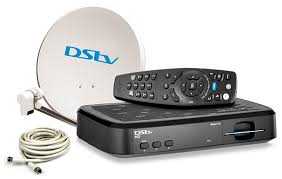President of the Senate, Ahmad Lawan, has constituted a seven-man adhoc committee to probe the tariff hike introduced by pay-tv service providers operating in the country.
This was even as the Senate directed all pay-tv service providers to immediately review their bouquet prices downwards in tandem with the prevailing reality of economic situation in Nigeria.
The Senate President, while announcing the composition of the adhoc committee, tasked the panel to carry out a comprehensive investigation into how other countries are billed by pay-tv service providers.
The Deputy Whip, Senator Aliyu Sabi Abdullahi (Niger North), was appointed by Senator Lawan to Chair the adhoc committee.
Members of the committee include Senators Sulaiman Abdu Kwari, Oluremi Tinubu, Yusuf A. Yusuf, Lekan Mustapha, Chukwuka Utazi, Akon Eyakenyi.
Earlier, the Senate in a motion kicked against the increase in tariffs by Multi-Choice Nigeria.
The motion titled, “Nigerians dumbfounded, outraged over Pay-Tv Tariff Hikes, demand for Pay-Per-View subscription model”, was sponsored by Patrick Abba Moro (Benue South).
The lawmaker, noted with concern the uproar within the public over tariff hikes, price increases by Pay-tv service providers on their bouquets;
He recalled that the leading pay-tv service provider in Nigeria, (MultiChoice Nigeria) informed all DStv compact subscribers on August, 22 2020, to expect a 13.3% price increase to N7,900 up from N6, 975 commencing from September 1, 2020.
Moro bemoaned the hike in subscription fee for DStv compact plus by 9.8 percent from N10,925 to N12,000, and DStv premium from N16, 200 to N18,400 indicating a 13.6% hike.
According to him, “MultiChoice Nigeria willfully and perpetually increases the cost of its bundles because there is no regulation whatsoever in the area of fixing rates.”
“Notes further that as usual, without recourse to the economic situation of the country MultiChoice has again raised the cost of its DStv and GOtv bundles stating them as follows, DStv Premium (#21,000), Compact (#14,250), Compact (#9, 000), Confam (#5, 300), Yanga (#2, 950), Padi (#2, 150), Business(#2, 669), Xtraview PVR access fee (2, 900).
“Those of GOtv are as follows; GOtv Max (4,150), GOtv Jolli (#2, 666), GOtv Jinja (#1, 900), GOtv Lite (#900)”, he said.
The lawmaker expressed concern that thousands of pay-tv subscribers in Nigeria have bitterly reacted to the development on different social media platforms, ranging from deep shock to pure outrage with many asking the Nigerian government to checkmate the activities of pay-tv service providers in Nigeria especially in the area of fixing prices.
He added that among the bitter complaints of Nigerian subscribers of pay-tv services is the poor network service experienced as a result of bad weather/ epileptic electricity supply, which sometimes makes a whole month subscription wasteful without the subscriber watching anything before the expiration.
Moro said that Nigerians are demanding that, rather than paying fixed rates for packages monthly, pay-tv service providers should introduce a subscription model which allows subscribers pay per-view to enable them match their TV consumption to subscription as it is the case with electricity metering and mobile telephony.
He explained that the pay-per-view that Nigerian subscribers are demanding for, is a flexible model plan of subscription which allows subscribers of pay-tv to pay-per watch, to avoid Paying for services which they do not consume.
Accordingly, the Senate, in its resolutions, urged the Federal Ministry of Communications and Digital Economy, and the Nigerian Communications Commission (NCC), to direct all pay-tv providers to introduce a pay-per-view model of subscription as against the month to month prepaid model presently in place.
The chamber also directed all pay-tv service providers in Nigeria to immediately review their bouquet prices downwards in tandem with the prevailing reality of the economic situation in the country.
It also resolved to set up an adhoc committee to embark on full scale investigation on the pricing activities of DStv (MultiChoice Nigeria) in Nigeria to bring it in line with international practice.


